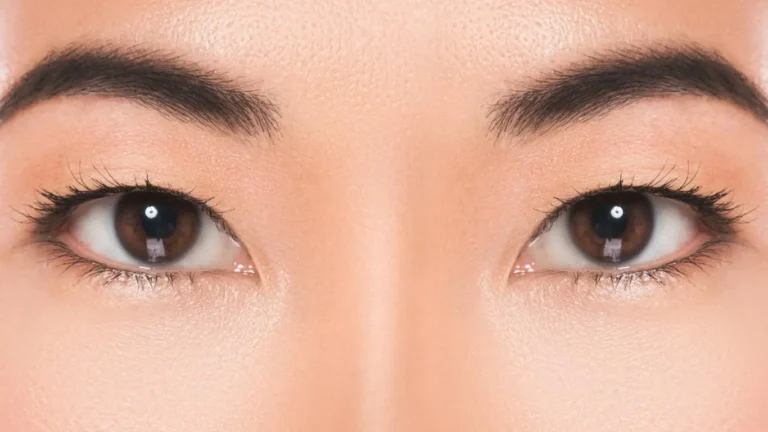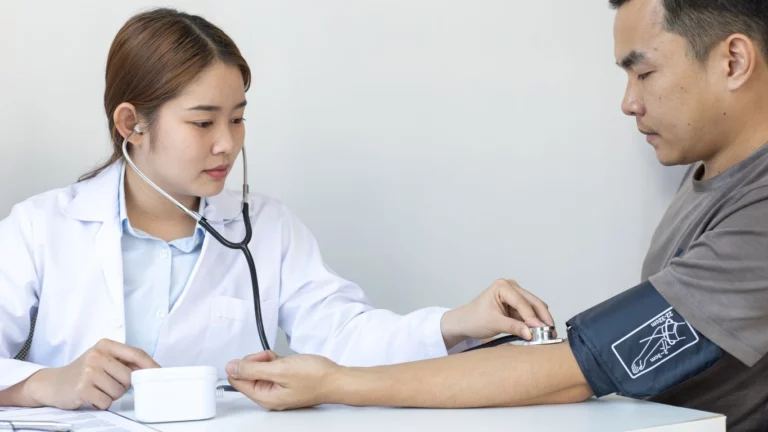Can Dehydration Cause Heartburn? Understand the Real Impact
Heartburn isn’t just a food thing—it can sneak up on you during the most unexpected times, even when your stomach is practically empty. I’ve experienced this firsthand after a long hike in the sun where I didn’t drink enough water. I was surprised when the burning sensation crept in even though I hadn’t eaten anything spicy. That moment made me wonder—can dehydration actually cause heartburn? Turns out, the connection is more real than most people think.
How Dehydration Affects Your Digestive Tract

Water does way more than just quench your thirst—it’s essential for your entire digestive system. When you’re dehydrated, your body has to prioritize water distribution to vital organs, which often leaves your gut struggling to keep things moving smoothly. This sluggish digestion can lead to issues like acid buildup and delayed stomach emptying—two common triggers for heartburn and acid reflux.
In particular, dehydration may compromise the mucosal lining of the esophagus and stomach, making them more sensitive to acid. And if there’s not enough water to produce adequate saliva—a natural acid neutralizer—you’re likely to feel the burn.
Less Water, More Acid
Stomach acid itself isn’t bad—it helps digest food. But when there’s not enough fluid in your system, acid can become concentrated, increasing the risk of it backing up into the esophagus. This is especially common in people with underlying GERD, as GERD can make the lower esophageal sphincter more prone to relaxing.
Recognizing the Signs: Is Your Heartburn Actually Dehydration?

Sometimes, it’s tricky to tell the difference between heartburn from food and heartburn from fluid loss. Here are a few clues that dehydration may be playing a role:
- You haven’t consumed much water in the past few hours
- Your mouth feels dry, and your urine is darker than usual
- You’re sweating a lot, but not replenishing fluids
- Your stomach feels queasy or bloated, even without a big meal
If this sounds familiar, rehydrating could offer more relief than an antacid.
The Surprising Ways We Get Dehydrated—Even Without Knowing

You don’t have to be on a desert hike to become dehydrated. Everyday activities and habits can quietly drain your body of essential fluids. Some of the biggest culprits include:
- High caffeine intake: That extra cup of coffee can have a diuretic effect, promoting fluid loss.
- Alcohol: It’s not just hard on your liver—it also dehydrates and relaxes the lower esophageal sphincter.
- Hot weather or excessive sweating: Obvious but often underestimated, especially during workouts or sauna sessions.
- Medications: Diuretics, antihistamines, and even some heartburn meds can have a drying effect.
In fact, smoking also contributes to acid reflux and fluid imbalance, making symptoms worse over time.
Hydration and Stomach Acid Balance

Staying hydrated is like giving your stomach a buffer. Water dilutes stomach acid slightly and helps wash it down into the intestines where it belongs. Even studies suggest that drinking water can neutralize stomach acid and relieve heartburn symptoms temporarily. It’s no replacement for long-term management, but it’s a powerful tool when used right.
For best results, sip water between meals instead of gulping it down during them. This can help prevent bloating and reduce the pressure that pushes stomach acid upward. You’ll also want to avoid carbonated or flavored waters with citric acid, which may aggravate symptoms.
Is Dry Mouth Making Your Heartburn Worse?

This is something I personally noticed—whenever my mouth feels dry, I tend to get more frequent flare-ups. That’s because saliva isn’t just there to help you chew; it also plays a major role in buffering stomach acid. When your mouth is dry, you lose a natural defense against reflux.
This is even more relevant if you experience heartburn in the morning. Overnight dehydration is common, and lying flat further encourages acid to rise. That’s why experts recommend elevating your head at night—a simple tip that can prevent nighttime reflux.
To learn more about helpful sleep strategies, check out the best sleeping positions for acid reflux relief.
How Much Water Is Enough?

The standard advice of eight glasses a day is fine, but everyone’s needs vary. If you’re active, live in a hot climate, or take dehydrating medications, you’ll need more. I’ve found that carrying a reusable water bottle around serves as a visual reminder and makes sipping second nature.
Also, incorporating foods with high water content—like cucumbers, watermelon, and celery—can help boost hydration without overloading your stomach. These foods are also naturally low in acid, making them excellent options for people managing GERD.
If you’re unsure whether your hydration habits are affecting your reflux, consider reading this related guide on unusual GERD symptoms like back pain—they may be more interconnected than you think.
For a full picture on causes that may be hiding behind your symptoms, you can explore this in-depth guide to surprising GERD triggers from our GERD Pillar Series.
Why Some People Are More Sensitive to Dehydration-Induced Heartburn

Not everyone reacts to dehydration the same way. Some folks can go half a day without a sip and feel fine. Others (like me!) might start feeling that gnawing burn after skipping just a couple of glasses. It’s not in your head—it’s a mix of body chemistry, medical history, and lifestyle choices.
People who are already dealing with chronic GERD, acid reflux, or have a weakened lower esophageal sphincter (LES) are simply more vulnerable. Their systems are already on high alert. So, throw in dehydration and suddenly it’s a recipe for discomfort.
Other High-Risk Groups
- Pregnant women: Hormonal shifts and fluid changes can heighten reflux risks.
- Older adults: Natural thirst cues diminish with age, leading to silent dehydration.
- People on diuretics: Whether for blood pressure or heart conditions, these meds often cause fluid loss.
- Active individuals: Sweating out fluids without replacement = reflux waiting to happen.
Tips to Stay Hydrated Without Triggering Reflux

Let’s be real—just chugging a gallon of water all at once isn’t the solution. If anything, that could make symptoms worse by overfilling the stomach. The trick is to hydrate *smart* and space it out.
Daily Hydration Habits that Actually Help
- Sip, don’t gulp: It gives your stomach time to process fluids without pressure buildup.
- Hydrate between meals: Drinking large amounts during meals can lead to bloating and reflux.
- Watch your beverage temperature: Some people find that extremely cold or hot drinks worsen symptoms.
- Add water-rich foods: Think cucumbers, cantaloupe, strawberries, zucchini—high water, low acid.
Also, avoid overly sugary sports drinks or fizzy beverages. Even carbonated water can create air pockets in the stomach, increasing the chances of acid pushing up through the LES. For people like me who love bubbles, this was a tough but necessary adjustment.
When Water Alone Isn’t Enough

Hydration isn’t just about water—it’s also about balance. If you’re losing a lot of fluids through sweat or illness, you’re likely also losing electrolytes like potassium, magnesium, and sodium. Without them, water won’t absorb properly.
This is where a good electrolyte solution or supplement comes in handy. But be mindful of ingredients—some products contain citric acid or artificial sweeteners, both of which can trigger reflux. Try to choose gentle formulas designed for sensitive stomachs or make your own with a pinch of salt, a squeeze of apple-safe juice, and water.
Need more insight on how magnesium may help beyond hydration? Read about magnesium’s role in heartburn relief.
Nighttime Hydration and Heartburn

This one took me a while to figure out. I used to wake up in the middle of the night with that burning in my chest, not realizing my body was dehydrated after hours of no fluid. But drinking too much water right before bed? That just made me feel bloated and worsened the reflux.
Turns out, there’s a balance. A small glass of water about an hour before sleep can help keep acid in check without making you feel overstuffed. Pair it with a slightly elevated pillow (or even a wedge pillow) and your risk of nighttime flare-ups drops significantly.
You might also want to explore other GERD-safe bedtime routines to enhance nighttime comfort.
When to See a Doctor About Dehydration and Heartburn

Occasional heartburn after being out in the sun too long or skipping water for hours? Probably nothing to panic about. But if it’s happening more regularly—even when you’re not eating poorly—it might be worth investigating.
Some signs to watch for:
- Frequent heartburn despite good hydration
- Heartburn waking you up multiple times a week
- Difficulty swallowing or a constant sore throat
- Feeling dizzy, fatigued, or experiencing dry mouth regularly
These could signal chronic dehydration, underlying GERD, or another condition. As always, getting medical input can help guide you toward lasting solutions. A gastroenterologist may recommend lifestyle adjustments, tests, or medications to assess and manage your reflux triggers more thoroughly. Trusted sources like Mayo Clinic offer more info on when to seek treatment.
Hydration Isn’t Just About Water—It’s Heartburn Protection

At the end of the day, hydration plays a much bigger role in digestive health than it’s usually given credit for. If you’ve been chasing every new reflux remedy without checking your water intake, it might be time to go back to basics.
I used to reach for antacids before I ever thought of reaching for a glass of water. But shifting my habits—keeping a bottle nearby, prioritizing water-rich foods, cutting back on reflux-triggering drinks—helped more than I ever expected.
Managing heartburn isn’t always about medications or extreme diets. Sometimes, it’s as simple as a sip.

Bianca Nala is a compassionate Nurse Practitioner with a strong background in primary and respiratory care. As a health writer for Healthusias.com, she combines her clinical expertise with a talent for clear, relatable storytelling to help readers better understand their health. Bianca focuses on topics like asthma, COPD, chronic cough, and overall lung health, aiming to simplify complex medical topics without losing accuracy. Whether she’s treating patients or writing articles, Bianca is driven by a single goal: making quality healthcare knowledge accessible to everyone.






